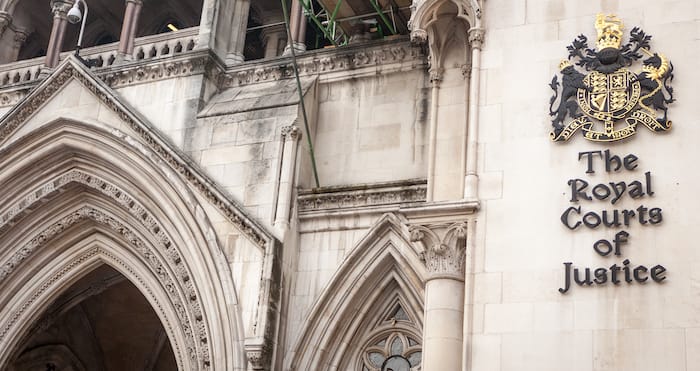Not a bad thing to have on your CV as a wannabe lawyer

As CV-building for an aspiring lawyer goes, successfully arguing your own High Court case takes some beating.
Michael Connor, a Staffordshire Uni law grad, has won a challenge to the lawfulness of benefits regulations — taking on two government barristers as a litigant in person.
Mr Justice Swift ruled last week that the Department for Work and Pensions (DWP) has been unlawfully making certain people refused disability benefits go through an internal review process before they can mount a proper appeal against the refusal.
Tom Royston, a social welfare law specialist at Garden Court North Chambers, said that the decision has “major practical implications”.
Legal Cheek reported last year how Connor, who has a Legal Practice Certificate but isn’t a qualified lawyer, had persuaded the High Court to hear his judicial review challenge to the rules on Employment and Support Allowance (ESA).
The Staffordshire man had spotted a legal problem with “mandatory reconsideration”, where people refused benefits only have a right of appeal if they first ask the DWP to reconsider its decision. He argued that could be a barrier to people’s right of access to the courts.
Connor also pointed out that someone appealing an ESA refusal would keep their benefits while the appeal was pending. But they didn’t keep their ESA during mandatory reconsideration — so inserting that process between refusal and appeal could cause “severe financial hardship and destitution”.
Mr Justice Swift agreed that the situation was “anomalous” and said that it was “striking that no explanation has been provided” about why payments were halted during reconsideration.
That, together with the longer wait before claimants could exercise their right of appeal, led Swift to conclude that the situation was a “disproportionate interference with the right of access to court”.
Connor told Legal Cheek that this should mean the end of mandatory reconsideration for ESA claimants covered by the ruling:
“What I’d expect the DWP to do is allow Employment and Support Allowance claimants in these circumstances to appeal right away, without having to go through the mandatory reconsideration process, and be allowed to retain an ‘appeal pending’ rate of benefit while waiting for their hearing.”
The department is expected to decide on its exact response — which could yet involve appealing Swift’s ruling — later this week.
Connor isn’t exactly a stranger to the often byzantine world of benefits law, having worked as a welfare adviser for many years before doing his law degree. He also managed to raise £7,500 in donations to cover court fees and enlisted Bar Professional Training Course grad Lauren Bicknell as a McKenzie Friend.
Still, it must be intimidating to be on your feet in the High Court for the first time, right? Not a bit of it: “We did have quite a challenging, inquisitorial judge, but it wasn’t a problem”, Connor says. “I was absolutely comfortable — it was the DWP barristers who had a very hard time!”
I made legal history today. This will restore a right to appeal adverse benefit decisions for 1000s of people. I did this myself no lawyers! I have a First Class Law Degree, Master of Laws and a Legal Practice Certificate though not formally a barrister. https://t.co/5YSPSCvRjV
— Mick Connor (@PillBoxBlues) July 24, 2020
“I was trying to be tactical and flexible with my submissions”, Connor added. “If the judge wasn’t accepting one line of argument, try another, until I found one that he was biting on.”
Not surprisingly, given that level of big lawyer energy, Connor is now looking for opportunities to qualify into the legal profession or in legal academia.


